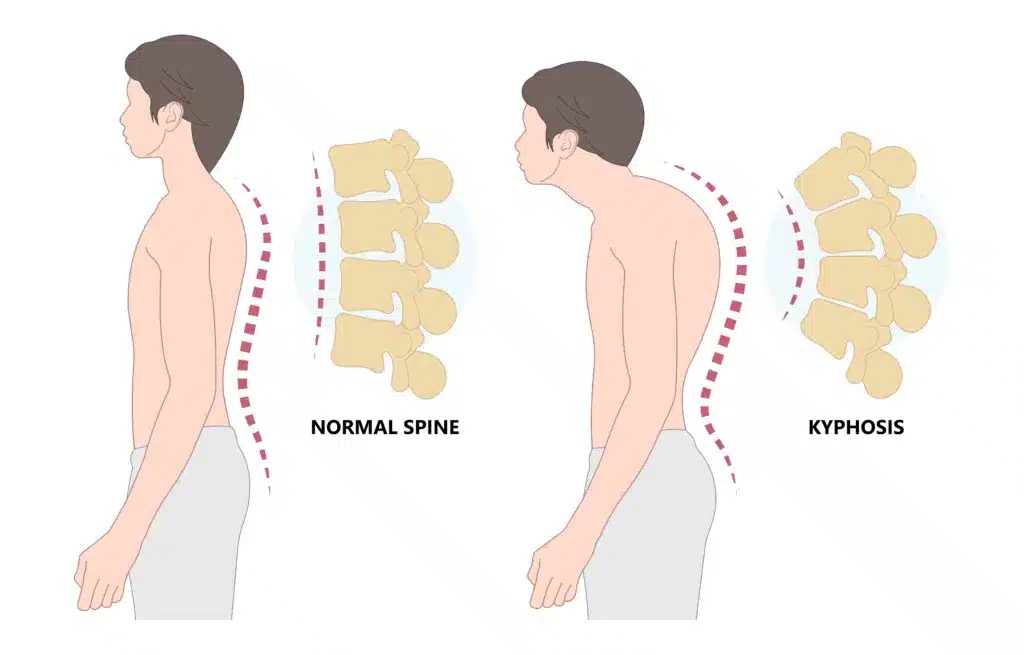Kyphosis refers to an excessive outward curve of the spine, specifically in the thoracic region, leading to a hunchbacked or slouched posture. While a certain degree of curvature is normal in the thoracic spine, kyphosis describes an excessive curve.
Kyphosis Symptoms
- Rounded shoulders or a visible hump on the back.
- Pain or discomfort in the spine, particularly in the thoracic region.
- Fatigue or muscle weakness.
- Stiffness in the back.
- In severe cases, difficulty breathing due to pressure on the lungs.
Types of Kyphosis
- Postural Kyphosis: The most common type, resulting from poor posture and slouching.
- Scheuermann’s Kyphosis: Caused by a structural abnormality where the vertebrae and discs between them develop irregularly.
- Congenital Kyphosis: This happens when the spinal column doesn’t develop properly in the womb.
- Secondary Kyphosis: Can result from nutritional deficiencies, neuromuscular disorders, spinal infections, tumors, or other conditions.
- Osteoporosis: This bone-thinning disorder can lead to crushed vertebrae and subsequent kyphosis.
Visit here for extended information including treatments for kyphosis.
